The Reason Behind Akio Toyoda’s Anti-Electric Vehicle Stance
As a translator in the automotive industry, my responsibilities include English translation, spelling proofreading, and phrasing modifications to ensure a more elegant and concise response. I will answer this question by only correcting and improving the text without providing further explanations.
Introduction: The electrification of automobiles has become the acknowledged direction of the industry. Nevertheless, while everyone has been striving towards the development of electric vehicles, Akio Toyoda, the leader of Toyota, has sung a different tune on multiple occasions, even attacking the Japanese government’s policy on electric vehicle development. So what is the reason behind his behavior?
In December 2020, Akio Toyoda publicly expressed that pure electric vehicles were overhyped at the annual meeting of the Japan Automobile Manufacturers Association. He argued that the Japanese government had not considered the carbon dioxide emissions generated by these vehicles and the consequences of power shortages, consumer harm, and impact on the traditional automobile industry. In response to this, the founder of XPeng Motors, He XPeng, immediately retaliated and compared Toyota to Nokia. Although this incident was gradually forgotten with time, we now recognize that the electrification of automobiles has begun to accelerate.
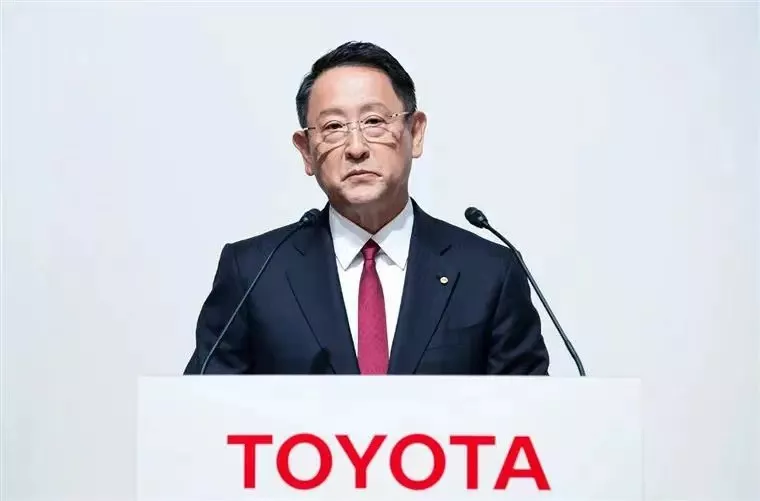
In September 2021, after the first round of critiques aimed at Toyota electric vehicles, the company appears to have begun prioritizing its electric vehicle strategy by showcasing their products at the Shanghai Auto Show. However, just when people thought that Akio Toyoda had started to focus on the development of electric vehicles, the CEO of Toyota initiated a second attack on electric vehicles. At a meeting of the Japan Automobile Manufacturers Association, Akio Toyoda and executives of other automakers, including Yamaha, Honda, and Isuzu, expressed their dissatisfaction with the Japanese government’s proposal to achieve carbon neutrality by promoting pure electric vehicles by 2050.
The Self-Made “Rich Third Generation”!
Toyota, which started out as a small weaving machine factory, climbed to the top of the automobile industry after several generations’ hard work. As the fourth-generation grandson of the Toyota family, Akio Toyoda was not automatically selected as the successor at birth. Like any other heir to a family business, Akio Toyoda worked at the grassroots level for several years after graduating from Keio University before returning to Toyota at the age of 27. From 1984 to 2000, he worked his way up from production management to automobile sales in his sixteen years at Toyota. After familiarizing himself with Toyota’s domestic operations, he then worked in the United States for several years before becoming a director in 2000, a managing director in 2002, and an executive vice president one year later. In 2005, before turning 50, Akio Toyoda had already become the vice president of Toyota.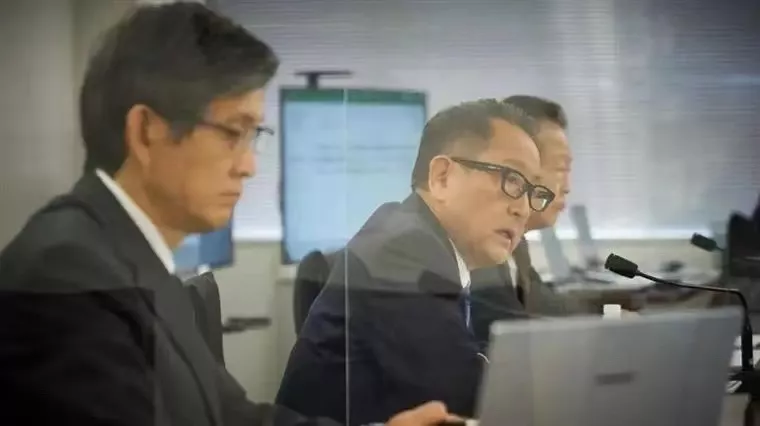
In Japan and around the world, society generally criticizes those who rely on family influence to advance, and most employees within the company are also unwilling. Therefore, in order for Akio Toyota to smoothly ascend to the presidency of Toyota Motor Corporation, he not only needs to have a comprehensive understanding of the company, but also needs to maintain an excellent image at all times. However, unlike other business heirs, when the Japanese media reported on Akio Toyota’s return, they used the phrase “Daisei houkan” in the headline. Regarding the term “Daisei houkan,” the reporter from the Electric Shock blog remembers that a friend once mentioned that the most famous “Daisei houkan” in Japanese history was Emperor Meiji of Japan, who took power into his own hands and led Japan to become a strong and prosperous country. From this, it can be seen that Japanese society is still very optimistic about Akio Toyota.
In 2011, after Akio Toyota officially took the helm of Toyota, he proposed the slogan “China is the most important.” At that time, China was in a period of rapid economic development, and the car market was like a high-speed train, moving forward quickly and steadily. According to data, from 2011 to 2020, China’s car insurance premiums continued to rise, successfully exceeding 800 billion yuan. From this, it can be seen that Akio Toyota is an entrepreneur with a far-sighted vision.
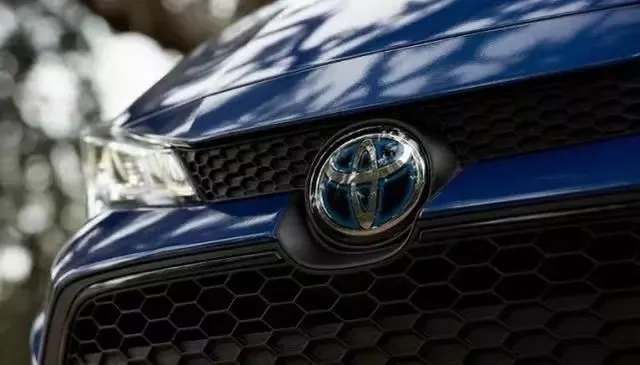
Against the backdrop of the rapid development of the Chinese auto market, Toyota Motor quickly expanded in China. According to data, in 2018, China’s passenger car sales were 22.72 million units, Toyota’s global sales were 10.52 million units, and the Chinese market contributed 1.48 million units; while in Volkswagen’s global sales of 10.83 million units, the Chinese market contributed 4.2 million units. In 2019, when the Chinese auto market experienced a decline for the first time in 28 years, Toyota Motor not only did not fall behind, but also showed its full firepower. Whether it is the deepening of the TNGA product concept, the vigorous promotion of electric vehicles, or the promotion of mobile transportation, Toyota has changed its conservative style of the past. Thanks to Akio Toyota’s emphasis on the Chinese market, Toyota Motor is now the car company with the highest global market share. Its global sales surpassed the Volkswagen Group in 2020, and it is expected to continue to win the global market sales championship in 2021.
Clear-headed Akio Toyota!## Why Did Akio Toyoda Oppose the Development of Electric Vehicles?
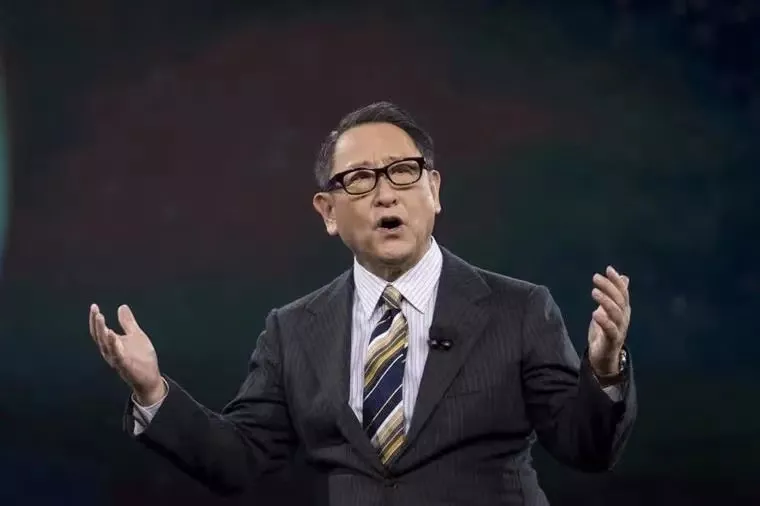
As a leading figure in the automotive industry, Akio Toyoda is well aware of the current and future energy structure of vehicles. In other words, his strong opposition to electrification is not due to a lack of insight into the prospects of new energy, but because Toyota is not yet ready. Previously, Akio Toyoda said, “Fortunately, Toyota has an 80-year history with many profitable businesses. I believe it is necessary to use current profits to invest and make up for losses; otherwise, there will be no technological progress. However, you cannot keep losing money. Companies should have a benign cycle of using profits to invest in new technologies, but profitability must be achieved after a certain period to realize the development of technology.”
As a leader in hybrid vehicles, Toyota is renowned globally for its Hybrid system’s low fuel consumption and low failure rates. In addition to this, Toyota is actively researching and developing solid-state batteries, with plans to unveil its first prototype vehicle with a ten-minute charging time and a 1000km range in 2021. Therefore, it is reasonable to believe that Akio Toyoda is not “attacking” electric vehicles because he is resistant to innovation, but rather because his company’s technology is not yet fully prepared.
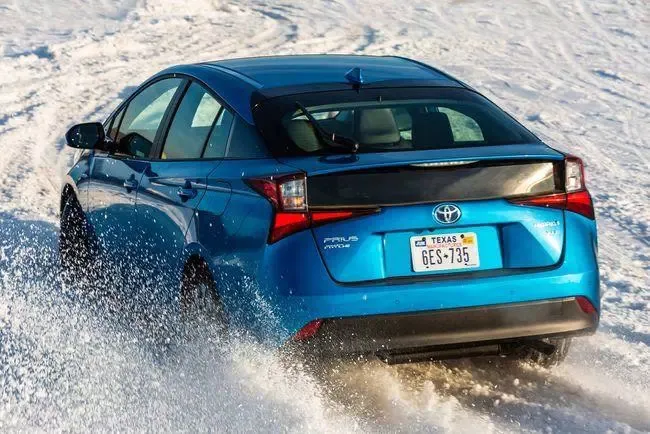
He twice criticised electric vehicles only in the hope of using Toyota’s reputation to suggest that countries reconsider the current status quo of the automotive industry and gain more time for transformation in the future of the Japanese automotive industry. The biggest advantage of Japanese cars currently is fuel efficiency, with Toyota’s Hybrid system pushing the fuel-saving level of traditional vehicles to new heights. However, the accelerated development of electric vehicles in Japan has undoubtedly weakened Toyota’s absolute advantage in the industry. It is worth noting that Akio Toyoda believes that internal combustion engines can also be green and clean. Also, with Japan being surrounded by the sea, there are abundant water resources, and only thousands of hydrogenation stations need to be built to meet Japan’s hydrogen fuel vehicle refuelling needs. Therefore, based on hydrogen combustion, the cumulative advantages of traditional automakers’ internal combustion engines can continue to be maintained, and they can continue to lead in this field.Different from hydrogen fuel cell vehicles, the cost of electric vehicles is mainly focused on batteries, and the cost of batteries is mainly on some metal materials, whether it is nickel, cobalt or lithium, Japan basically has no reserves. In contrast, China has a considerable amount of reserves in these resources. If Japan wants to develop pure electric vehicles, it means that Japan will have to import a large amount of these resources. Therefore, Akio Toyoda’s goal is not to go against the world, but to procrastinate and prepare for Toyota’s hydrogen fuel cell strategy.
Selfishness Leads to Defeat!
However, in this “national contest”, Japan can be said to have a weak voice, while the two big countries of China and the United States have both encountered an unprecedented historical opportunity. They will not sit idly by and watch Japan once again become the leader of the global energy industry. With Japan’s scale, they cannot compete with China and the United States, so in this gamble, Japan can be said to be destined to lose.
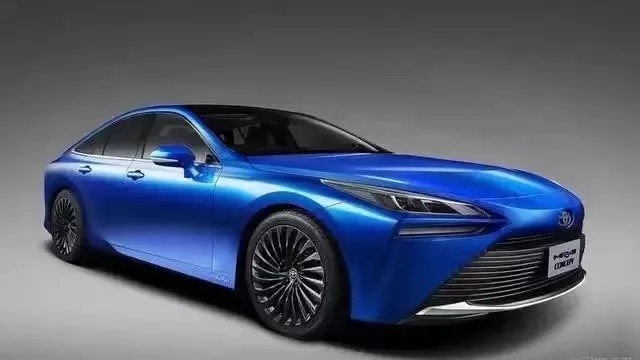
By the way, I believe Akio Toyoda’s view is not wrong. Developing hydrogen fuel cell vehicles will definitely be the mainstream direction of automotive energy in the future. Although electric vehicles seem to be very environmentally friendly in the current stage with no carbon emissions, how to deal with a large number of discarded batteries after electric vehicle products are scrapped? Therefore, the development of hydrogen fuel cell vehicles will definitely become the mainstream in the future. So the question is, why did no carmaker choose to follow suit in the process of Toyota’s emphasis on hydrogen fuel cell vehicles?
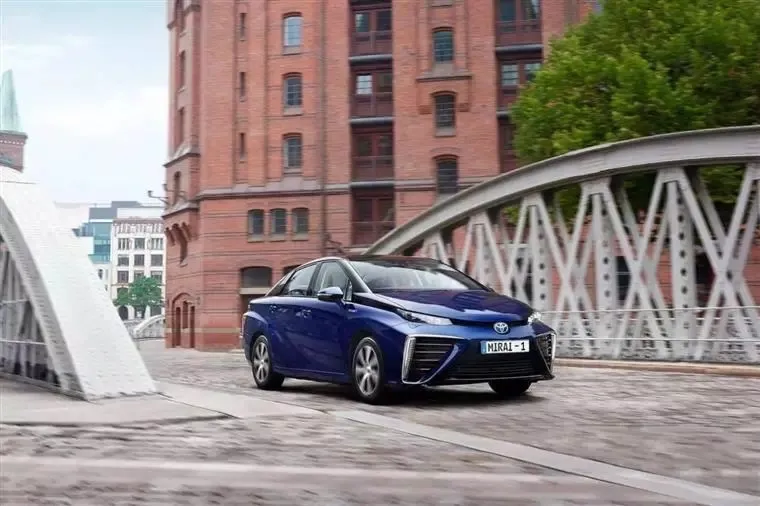
In fact, it is not that everyone is unwilling to follow the development of hydrogen fuel cell vehicles, but because Akio Toyoda is unwilling to share technology with other carmakers while focusing on hydrogen fuel cell vehicles. It is understood that currently over 70% of hydrogen fuel cell vehicle technology is in the hands of Japanese brand automakers. With the limitations of numerous technologies and the background of Japanese brands starting early in the field of hydrogen fuel cell vehicles, most automakers are not willing to spend a lot of effort to develop hydrogen fuel cell vehicle technology, but choose to develop less demanding electric vehicles.
Therefore, Akio Toyoda hopes to gain more time for his hydrogen fuel cell vehicles in the context of accelerating the electrification of the global automotive industry. Of course, the attempt to fight against many carmakers worldwide with one’s own power is undoubtedly an unrealistic effort.After a speech by Akio Toyoda at a meeting, many people think that Toyota could be the next “Nokia”. In the mobile phone market of the past, the most basic function of a phone was to make calls and send messages. Nokia, with its strong quality, dominated the mobile phone market. However, with Apple’s addition of more intelligent features to phones, Nokia began to be rapidly eliminated from the market.
Unlike Nokia, which did not realize its mistakes until the moment it was acquired, Akio Toyoda has already seen what the future energy architecture will be like at this stage, and has even begun to lay the foundation in advance. Therefore, the two times that Akio Toyoda criticized electric cars was not a rejection of them, but rather an effort to leverage the influence of Toyota to gain more time for its own transformation, ensuring that when handing over to the next successor, Toyota can still maintain its dominant position in the new energy era.
This article is a translation by ChatGPT of a Chinese report from 42HOW. If you have any questions about it, please email bd@42how.com.